A Cultural Clash in the Classroom — SCOTUS leaning right
Don’t like to read? No problem! Check out the podcast we’ve produced about this article! Just hit the play button!
In an April 2022 survey, more than half of adult respondents expressed opposition to the inclusion of teaching or discussions related to the LGBTQ+ civil rights movement within kindergarten to 12th-grade educational curriculums.1
Picture this: a battlefield where rainbow umbrellas clash with religious texts, and at the center, the U.S. Supreme Court deciding the fate of storybooks like Uncle Bobby’s Wedding.
It’s not just a legal debate; it’s a cultural warzone where the rights of queer kids and religious parents are duking it out. Welcome to the latest episode of “America’s Got Drama,” where the stakes are high, and the arguments are even higher. This isn’t about banning books outright—it’s about whether parents can shield their kids from tales of love and identity that don’t align with their faith. Buckle up, because this Supreme Court LGBTQ book ban case is serving tea hotter than a Pride parade in July.
The Case: Montgomery County’s Curriculum Conundrum
Let’s set the stage. In 2022, Montgomery County, Maryland, decided to sprinkle some diversity into its elementary school curriculum by adding storybooks featuring LGBTQ+ characters. We’re talking heartwarming tales like Pride Puppy, where a pup gets lost at a Pride parade, Love, Violet, a story of queer affection, and Born Ready, which follows a young girl embracing her identity as a boy. The goal? To foster inclusivity and teach kids that all families deserve respect, as noted by the school’s attorney in court (Washington Post). Sounds wholesome, right?
Not to everyone. A coalition of religious parents—Muslim, Roman Catholic, and Ukrainian Orthodox among them—cried foul. Backed by the Becket Fund for Religious Liberty (an organization featured in a publication entitled ‘Religious Liberty’ and the Anti-LGBT Right published by the Southern Poverty Law Center) they argued that these books clashed with their sincerely held beliefs about gender and sexuality. They weren’t asking to torch the books or rewrite the curriculum; they just wanted an opt-out option for their kids, something the school initially offered but later yanked. When the Montgomery County Board of Education doubled down, the parents sued, claiming the policy violated their First Amendment right to freely exercise their religion. The case, Mahmoud v. Taylor, climbed through the courts, landing at the Supreme Court on April 22, 2025, with dueling rallies outside and a nation watching (AP News).
This isn’t just a local spat. Montgomery County, with its 160,000 students and diverse population, is a microcosm of America’s cultural fault lines. The political backdrop? A conservative Supreme Court that’s been flexing its muscles on religious rights, often at the expense of LGBTQ+ protections, as seen in cases like the web designer who refused same-sex wedding sites and the Catholic agency rejecting queer foster parents (New York Times). Add in a Trump administration backing the parents, and you’ve got a recipe for a legal showdown with national implications.
In June of 2022 nearly one-third of adult respondents in the United States indicated their support for overturning Obergefell,2 which upholds the legality of same-sex marriage.3
Oral Arguments: Sass, Shade, and Supreme Court Shenanigans
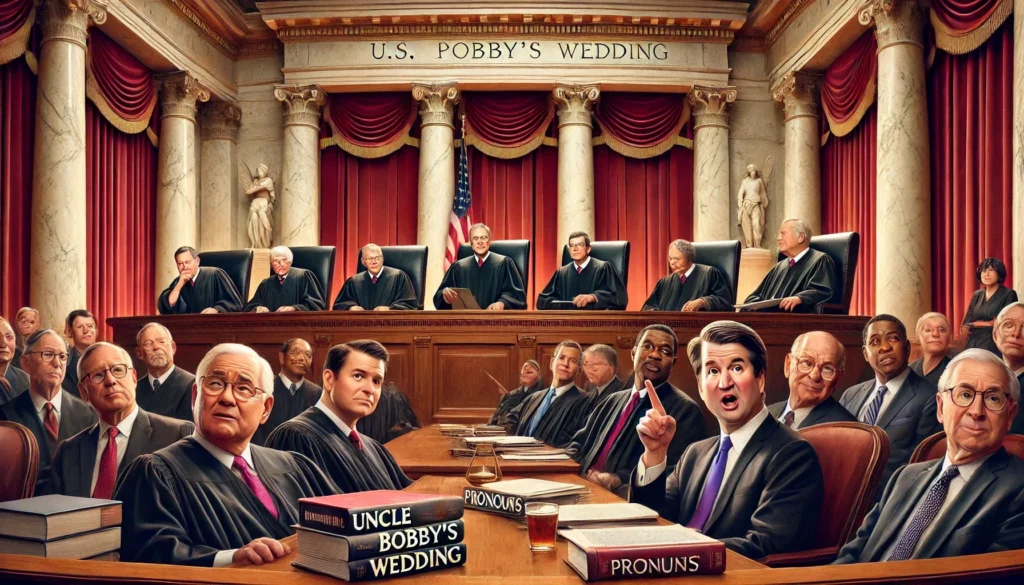
On April 22, 2025, the Supreme Court (SCOTUS) turned into a verbal sparring ring, and the justices didn’t hold back. The conservative majority—think Alito, Kavanaugh, Barrett, and Roberts—seemed ready to hand the parents a win. Justice Samuel Alito, never one to mince words, questioned why letting parents opt out was such a “big deal,” suggesting it was a simple fix. He even tossed in some shade, proposing a “book club” to debate Uncle Bobby’s Wedding, a story he argued subtly promotes same-sex marriage as the moral high ground (New York Times). Justice Brett Kavanaugh, a Montgomery County resident himself, was “a bit mystified” by the school board’s resistance, wondering why they were digging in their heels (Washington Post). Justice Amy Coney Barrett got spicy, pointing out teacher talking points on pronouns and trans identity that she said presented these as “the right view of the world.” Chief Justice John Roberts, ever the skeptic, asked if it was “realistic” to expect 5-year-olds to critically engage with these lessons without soaking them up like sponges.
The liberal justices, however, weren’t here for it. Justice Sonia Sotomayor clapped back, noting that Uncle Bobby’s Wedding shows minimal affection—think hand-holding, not a steamy romance—and asked, “What’s wrong with exposing children to the idea of same-sex marriage?” (New York Times). Justice Elena Kagan warned of a slippery slope, cautioning that allowing opt-outs could lead to “opt-outs for everyone,” from evolution to climate change, turning schools into a logistical nightmare (Washington Post). Justice Ketanji Brown Jackson suggested local school boards, not courts, should hash out these community values, even floating the hypothetical of parents opting out if a gay teacher displays a wedding photo (NPR).
The parents’ lawyer, Eric Baxter, argued that the curriculum amounted to “indoctrination,” forcing kids to adopt views at odds with their faith. The school’s attorney, Alan Schoenfeld, countered that the books teach “civility and respect,” not coercion, and that opt-outs would create “mayhem” with alternative classrooms and supervision needs (Washington Post). The conservative justices seemed skeptical of the school’s stance, with Kavanaugh even thanking Schoenfeld for arguing a “tough case,” a polite way of saying, “Good luck with that” (New York Times).
Queer Lens Analysis: The Weaponization of “Parental Rights”
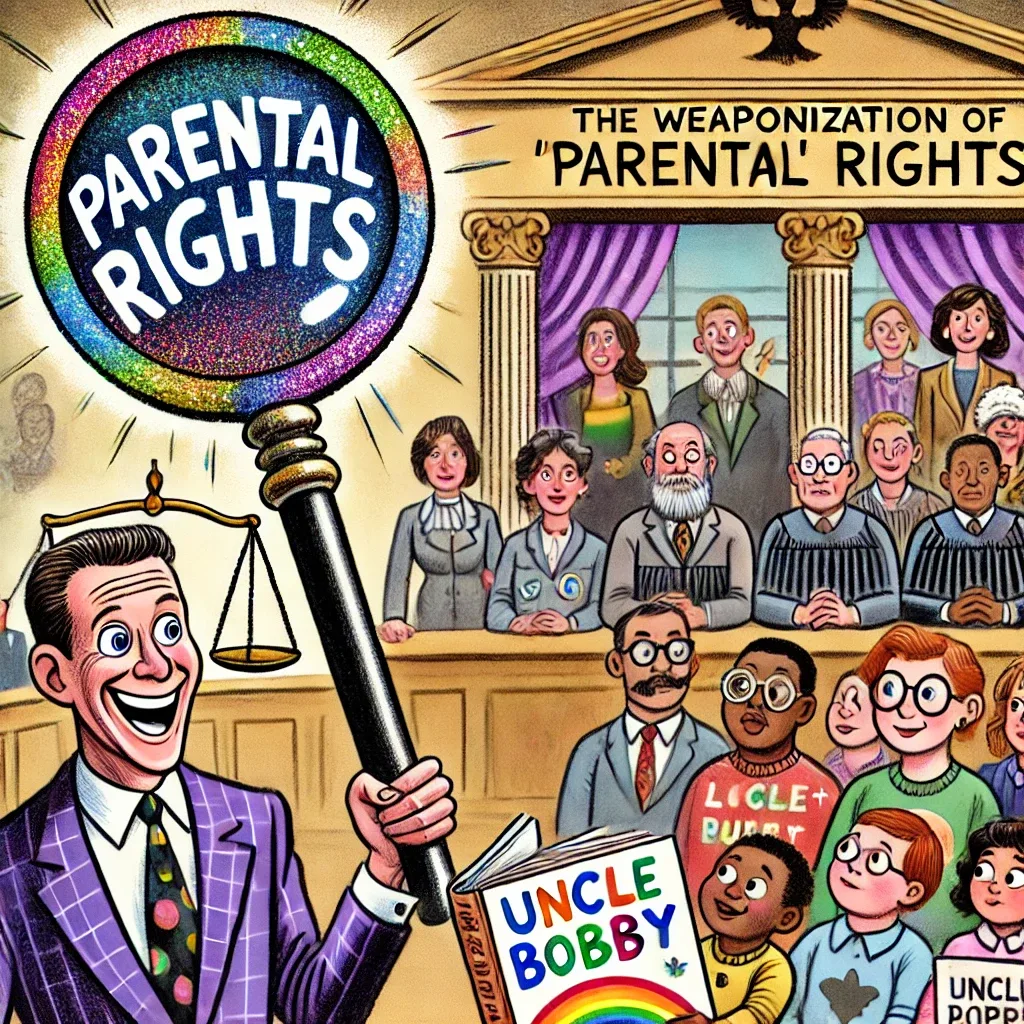
Let’s zoom out and put on our queer-tinted glasses. This case isn’t just about a few storybooks in Maryland; it’s a chapter in a larger saga of anti-LGBTQ+ legal trends. The Supreme Court’s recent track record—siding with religious objectors in cases involving gay wedding websites, praying football coaches, and foster care agencies—shows a pattern of prioritizing faith-based exemptions, often at the cost of queer rights (New York Times). The Mahmoud v. Taylor case fits snugly into this narrative, with “parental rights” becoming the latest weapon in the culture wars.
The term “parental rights” sounds innocuous—who doesn’t want parents to have a say in their kids’ education? But here, it’s being used to challenge inclusive curricula that affirm LGBTQ+ identities. By framing these books as a threat to religious values, the parents’ argument risks painting queer lives as inherently controversial, something to be opted out of like a field trip permission slip. This isn’t just semantics; it’s a move that could erase queer representation from classrooms, sending a message to LGBTQ+ kids that their stories are optional, their families debatable. As Pen America put it in a court filing, allowing opt-outs is “a constitutionally suspect book ban by another name” (AP News).
The stakes go beyond symbolism. Studies show that inclusive curricula reduce bullying and foster empathy among students, creating safer schools for everyone (GLAAD Fact Sheet). But when parents can opt out of lessons about queer families, it risks stigmatizing LGBTQ+ students, making them feel like their identities are a problem to be avoided. It’s not hard to imagine a classroom where kids opted out of Pride Puppy start whispering about the “weird” book, or worse, the “weird” kid whose parents are like the ones in the story. This isn’t hypothetical—LGBTQ+ youth already face higher rates of bullying and mental health challenges, and exclusionary policies only pour salt in the wound.
The “parental rights vs LGBTQ inclusion” debate also taps into a broader fear: indoctrination. The parents’ side, represented by groups like Kids First, claims the curriculum pressures kids to adopt progressive views on gender and sexuality, with one board member calling the content “sexual, confusing and inappropriate” (AP News). But let’s be real: Uncle Bobby’s Wedding isn’t handing out manifestos; it’s a picture book about love and family, not a queer theory syllabus. The real indoctrination fear cuts both ways—LGBTQ+ advocates argue that shielding kids from diverse identities indoctrinates them into a worldview where only certain families are “normal.”
What’s at Stake: Queer Kids, Teachers, and Families
Almost half of LGBTQ+ youth in the United States, aged 18 to 25
,refrained from seeking mental health assistance due to fears of having to discuss sensitive issues, the necessity of obtaining parental consent, or concerns about not being taken seriously. Additionally, over one-quarter avoided mental health treatment due to apprehensions about the repercussions of revealing their sexual orientation or gender identity.4
If the Supreme Court greenlights religious opt-outs, the ripple effects could be seismic. For queer kids, it’s personal. Imagine being a 7-year-old with two moms, sitting in a classroom where half your peers are excused from reading about families like yours. That’s not just a policy; it’s a gut punch, signaling that your existence is up for debate. Schools are supposed to be safe spaces, but this could turn them into battlegrounds where queer identities are sidelined.
Teachers, meanwhile, face a logistical nightmare. Picture trying to teach a cohesive lesson when some students are whisked away for “alternative activities” every time a book mentions a Pride parade. The school’s lawyer warned of “mayhem,” and he’s not wrong—opt-outs could require extra classrooms, staff, and curricula, stretching already thin resources (Washington Post). Plus, teachers might self-censor, avoiding inclusive books altogether to dodge the hassle, effectively erasing queer stories from the classroom.
For families, especially those with LGBTQ+ members, a pro-parent ruling could feel like a betrayal. Public schools are meant to serve everyone, not just those with specific religious views. Maryland’s Attorney General Anthony Brown argued in a brief that “students must learn to treat LGBTQ people with respect and dignity,” regardless of personal beliefs (Fox Baltimore). A ruling against the school could undermine that principle, prioritizing one group’s rights over another’s.
Approximately one-third of LGBTQ+ young adults aged eighteen through twenty-five have seriously contemplated suicide, with nearly fourteen percent having devised a plan and almost eight percent having made an attempt.5
Nationwide, the ruling could open the floodgates for opt-outs on any topic—evolution, climate change, you name it. Justice Kagan’s warning about “opt-outs for everyone” isn’t hyperbole; it’s a real risk to the idea of public education as a shared experience (Washington Post). Schools could become a la carte menus, with parents picking and choosing what their kids learn, as Kelly Parry-Johnson of Advocates for Trans Equality pointed out: “This case is about whether public school education can be a la carte, allowing parents to pick and choose and individually direct curriculums” (GLAAD).
Voices from the Trenches
Both sides brought passion to the table. The parents, represented by Eric Baxter, argued, “The school system is forcing us to choose between violating our sincere religious beliefs and forgoing public schooling” (Washington Post). They see the curriculum as an overreach, compelling their kids to engage with ideas they believe are morally wrong.
The school system, through attorney Alan Schoenfeld, pushed back: “The Constitution does not require public schools to provide a broad opt-out option.” He emphasized that the books aim to teach “mutual respect,” not to coerce belief, and that opt-outs would disrupt the educational mission (Washington Post).
LGBTQ+ advocates were unequivocal. The authors and illustrators of the books in question issued a powerful statement: “We stand in support of the Montgomery County School District. We oppose censoring or segregating books, like ours, that feature LGBTQ+ people. All families deserve to be seen and heard. To act otherwise is harmful and sends a devastating message to students: that their lives and families are so offensive and dangerous that they can’t even be discussed in school” (GLAAD Fact Sheet). Kelly Parry-Johnson added, “This is at odds with the reality of—and our American and democratic values of—a pluralistic society and goals of public education” (GLAAD).
The Likely Ruling: A Conservative Tilt
Based on the oral arguments, the Supreme Court’s 6-3 conservative majority appears poised to side with the parents, potentially ruling that schools must allow religious opt-outs for LGBTQ+ content. Justices like Alito and Kavanaugh signaled skepticism toward the school’s position, with some even suggesting the board’s refusal might stem from “hostility toward religion” (NBC News). A decision is expected by June 2025, and if it goes the parents’ way, it could mark a significant expansion of religious rights in public schools, building on precedents like the praying coach case (CNN).
But don’t count out surprises. The Court has occasionally zigged when we expected a zag, and the liberal justices’ concerns about educational chaos might sway a swing vote like Roberts. Still, the tea leaves point to a win for the parents, which could reshape how schools navigate the religious opt-out public school LGBTQ debate.
A Call to Action: Pronouns and Pitchforks
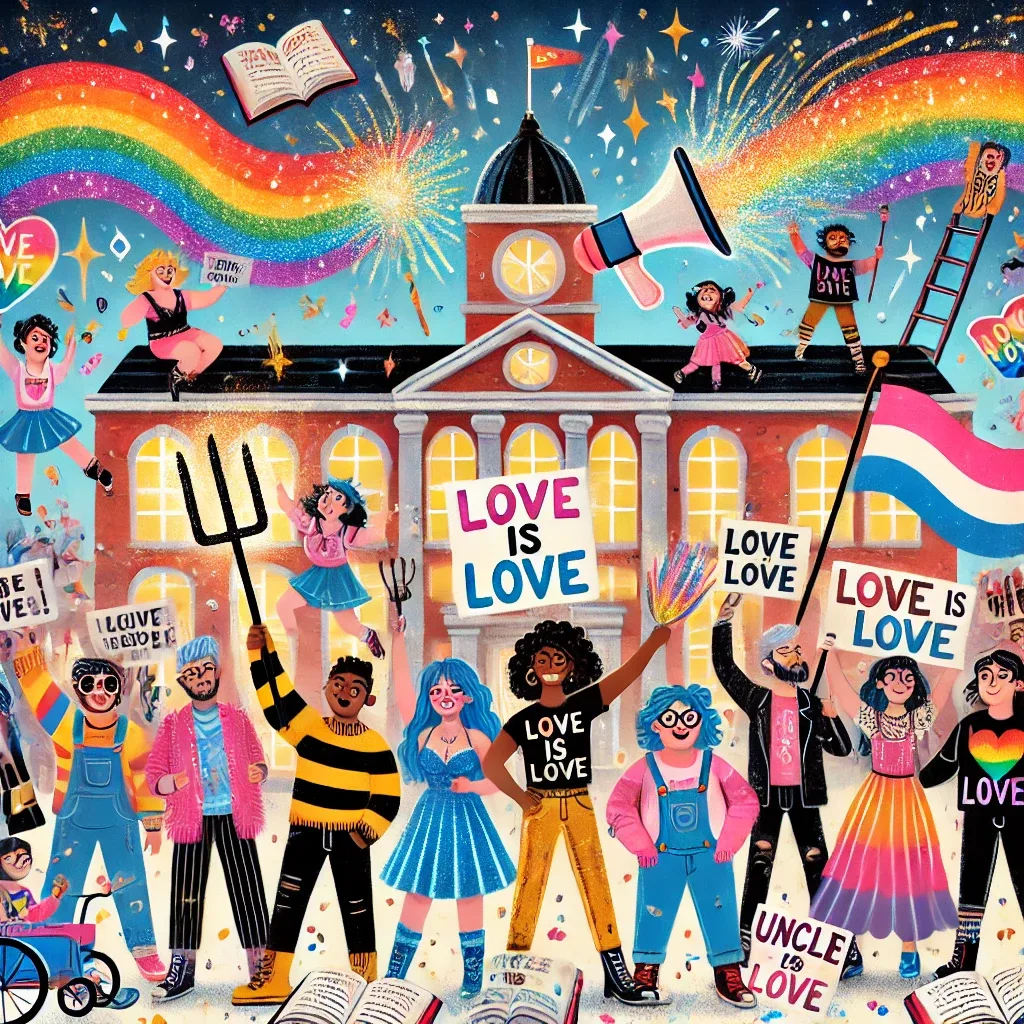
So, what’s a queer ally to do? Stay woke, stay loud, and support queer education rights. This fight isn’t just about Uncle Bobby’s Wedding; it’s about ensuring every kid grows up in a world that celebrates diversity, not one where identities are opt-out options. Get involved—support organizations like GLAAD and Advocates for Trans Equality, attend school board meetings, and amplify queer voices. Because if we let these stories be silenced, we’re not just losing books; we’re losing the chance to teach kids that love is love, no matter who’s holding hands.
Grab your pronouns and pitchforks, girls, gays, and theys—let’s make sure our schools are places where every story gets told, and every kid feels seen. The Supreme Court might have the gavel, but we’ve got the glitter, and that’s a power all its own.
Key Citations
- Supreme Court seems likely to let religious families opt out of LGBTQ storybooks
- Justices Seem Set to Allow Opt-Outs From LGBTQ Stories in Schools
- Supreme Court to hear case on Maryland parents’ objections to LGBTQ books
- Supreme Court considers parents’ efforts to exempt children from LGBTQ books
- Supreme Court conservatives signal support for parents in LGBTQ book case
- Fact Sheet: Mahmoud v. Taylor, the U.S. Supreme Court Case About Banning LGBTQ-inclusive Books
- Education À La Carte: Legal and Anti-Censorship Experts on Mahmoud v. Taylor
- Maryland AG defends Montgomery County policy on LGBTQ books
- Supreme Court appears poised to rule for parents objecting to LGBTQ content
- See Morning Consult, Support or opposition to the LGBTQ civil rights movement being taught or discussed in K-12 schools in the United States in 2022, by political party, Statista, https://www.statista.com/statistics/1310847/support-lgbtq-civil-rights-schools-us (last visited April 22, 2025). ↩︎
- Obergefell v. Hodges, 576 U.S. 644, 135 S. Ct. 2584 (2015). ↩︎
- See YouGov, Would you like to see the Supreme Court overturn its Obergefell v. Hodges decision that protects same-sex marriage?, Statista, https://www.statista.com/statistics/1317789/support-for-overturning-same-sex-marriage-us (last visited April 22, 2025). ↩︎
- See The Trevor Project, Percentage of U.S. LGBTQ youth who wanted mental health care but were unable to get it for select reasons as of 2022, Statista, https://www.statista.com/statistics/1172822/us-lgbtq-youth-who-wanted-mental-health-care-but-did-not-get-it (last visited April 23, 2025). ↩︎
- See SAMHSA, Percentage of U.S. lesbians, gays, or bisexuals aged 18-25 years who reported suicidal thoughts, plans, or attempts in the past year as of 2021, Statista, https://www.statista.com/statistics/1114833/suicide-past-year-lgb-adults-percentage (last visited April 22, 2025). ↩︎


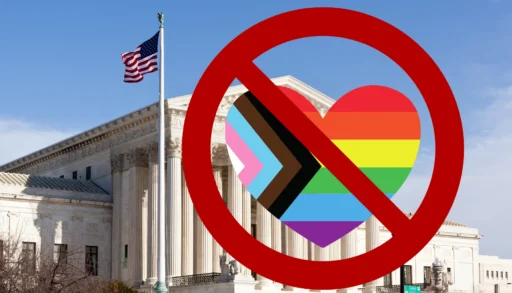



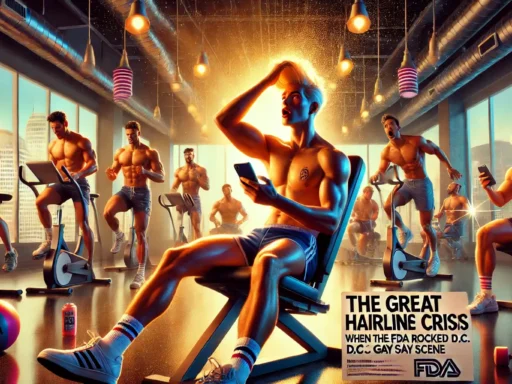
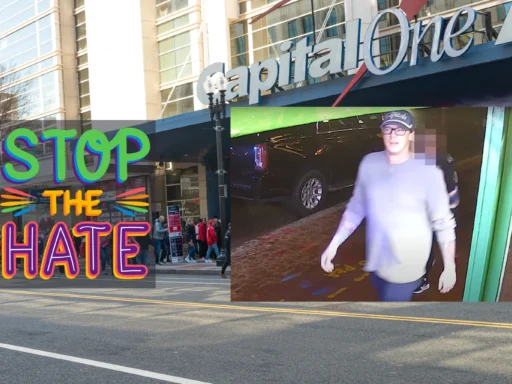
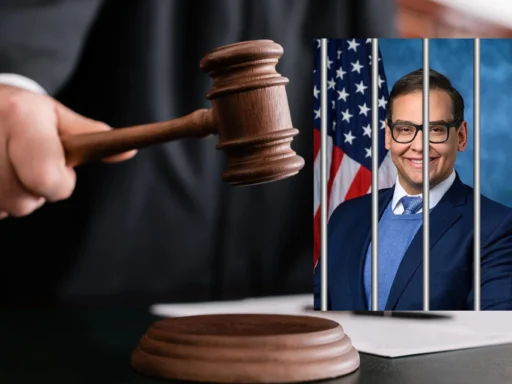
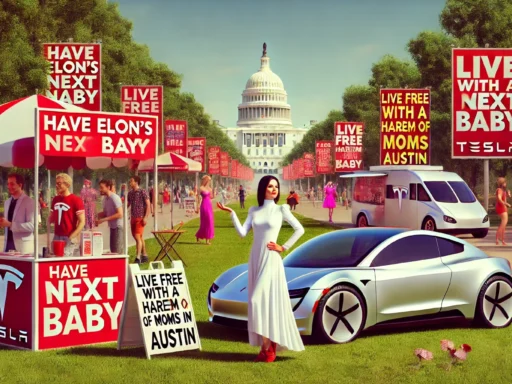
Comments are closed.